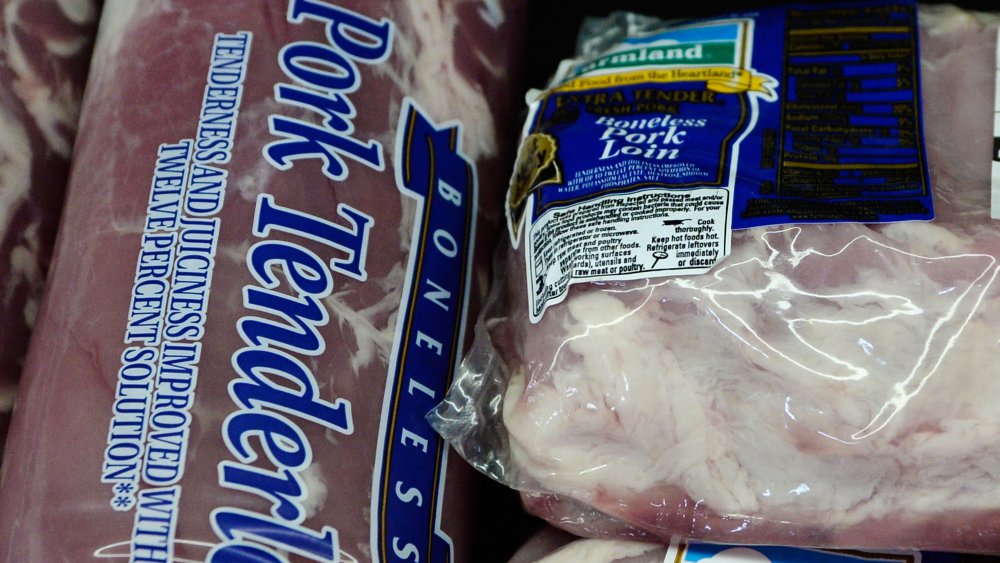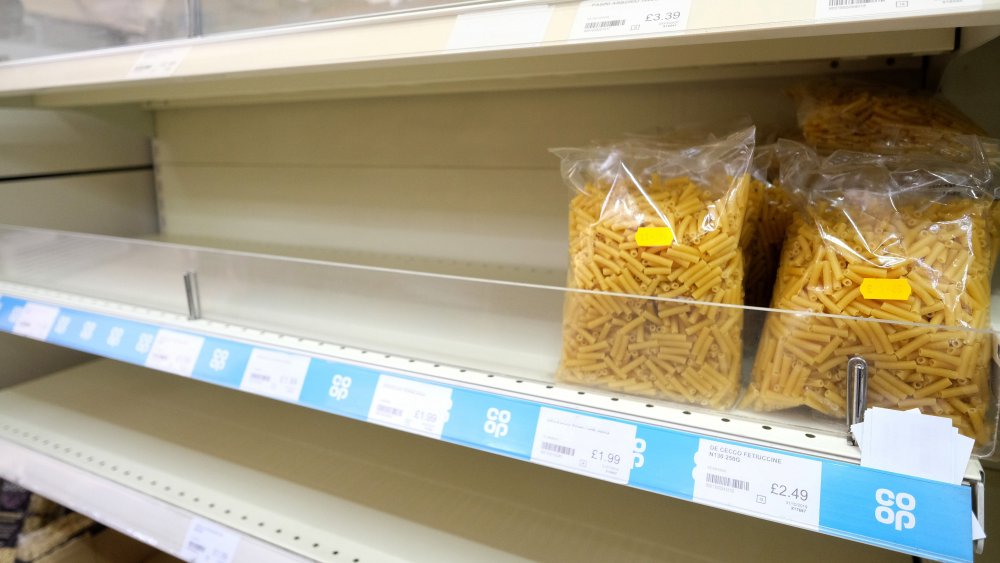The Real Reason The U.S. Might Be Facing A Meat Shortage
A facility in South Dakota that processes 4 to 5 percent of the United States' pork supply closed indefinitely after hundreds of workers there tested positive for COVID-19 (via NPR). Food industry experts were saying as early as last week that a meat shortage wasn't likely in the U.S., according to CNN, but that could be changing.
"The closure of this facility, combined with a growing list of other protein plants that have shuttered across our industry, is pushing our country perilously close to the edge in terms of our meat supply," said Kenneth Sullivan, CEO of Smithfield Foods, which operates the South Dakota plant. Other meat processors, including JBS USA, Cargill, and Tyson Foods have temporarily closed plants in Pennsylvania and Iowa, the NPR report said.
Meat processors are particularly susceptible to COVID-19 because the social distancing recommended by the CDC can't always be practiced in a facility that cranks out millions of servings of meat per day. This is evidenced by the latest guidelines from the North American Meat Institute, which say that "physical (social) distancing should be a tool, but not a requirement, in facilities needed to operate at capacity."
While many businesses have been ordered to close during the COVID-19 outbreak, meat processors are considered essential businesses. The U.S. Department of Agriculture recommends proper cleaning practices and employee hygiene at meat facilities to reduce the risk of contracting the virus. The USDA says there is no evidence COVID-19 is spread through food or its packaging.
Signs of wider disruptions to food supply chain
The food supply problem involves more than meat and is being felt worldwide. The problem isn't food scarcity, according to a CNN report. The steps taken to slow the spread of the virus have disrupted the complex chains that get food from the farm field to your table. According to another CNN report, the closure of some shipping ports and the grounding of some commercial airplanes have left containers full of food in holding areas. The United Nations' Committee on World Food Security warned last month that these disruptions to the food supply would hit poor people the hardest. The Food and Land Use Coalition, which includes nonprofit and business leaders from around the world, urged governments to take action to secure the food-supply chain and avoid "a global food and humanitarian crisis."
"Food supplies could be massively disrupted due to measures put in place to control the spread of COVID-19. The number of people suffering from chronic hunger — estimated at well over 800 million before the crisis — could jump dramatically," the group's statement said.

